Diogo Lacerda Machado, Aviation enthusiast
TAP was born 75 years ago, thanks to the creative impulse of General Humberto Delgado, months before the end of World War II and some time after that extraordinary circumstance which was the demobilisation of thousands of pilots and the availability of a huge number of iconic DC – 3 airplanes, better known as “Dakotas”, which paved the way to a brave new time in the history of commercial aviation and which has brought us, with some occasional mishaps, until February 2020.
The first time frame in this story takes place between 1945 and 1978. Taking the USA as a reference, this corresponds to the period when regulation in the provision of domestic air transport services served a logic of public service, with interstate routes rigidly concessioned or licensed, designed to fly over the railroad lines, and with tariffs which, although they were subject to administrative approvals in order to prevent monopolistic abuses, circumscribed the possibility of flying to wealthy people. It was the time of passengers with a ‘dress code’: gentlemen dressed in impeccable suits and finely dressed ladies with new ‘tailleurs’ and caring the indispensable ‘nécessaire’ bag. In the international skies appeared the figure of the flagship companies, whose name derives from the indispensable bilateral diplomatic air transport agreement signed between two States and whereby they were designated to carry, exclusively, the flag of their State on flights between the territories of those counterparty States. Many of you may still remember Pan American or TWA. In 1971 a new company, Southwest, started operating in Texas, with an innovative business model, low-cost, which would cause a true disruption.
Between 1945 and 1975 TAP was essentially targeted and focused on ensuring air transport in the Portuguese world and to provide a kind of transfiguration of the national geographic unit in the continent and overseas. TAP was then a case of national pride and there was not much room for considerations as regards its profitability.
In 1975, TAP was nationalised, going back fully into the public sphere, from where it left on occasion and only in part. After decolonisation the company lost all of sudden its previous vocation and it took a while to find another primary destination, which also did not seem to be of great importance given the same irrelevance of considerations as regards its profitability.
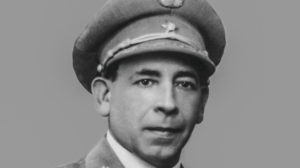
Avoiding regulatory limitations designed for the interstate skies, considering that it began its operations by connecting only cities within the same state, Southwest quickly became a success story for having rendered access to air transport popular. Ferociously attacked by traditional companies using administrative and judicial means to fight Southwest, this innovative low-cost company did triumph in the end by definitively breaking the logic and regulatory barriers of the previous three decades after the approval of the liberalising “Airline Deregulation Act” of 1978, which marks the turning point for a new time. On this side of the Atlantic, EEC, as it was known by then, followed the same path, progressively dismantling limitations on access to the common market and obstacles to the elementary principle of freedom of movement, which lead to transatlantic convergence and “OpenSkies” agreements, which, except for limitations as regards shareholding control of airlines – which still remain today – led to a huge multiplication of air connections and diversification of the offer. Ryanair was created in Ireland in 1984, adopted Southwest’s model and became the first European low-cost. By carrying 152 million passengers in 2019, Ryanair outnumbered the 145 million passengers carried by Lufthansa in the same year and achieved absolute leadership in Europe.
From 1978 onwards the market looked like that, operating under the logic of liberal economy, between attempts to meet the demand that grew exponentially and the increasingly competitive offer that shapes and characterises economic agents such as the airlines.
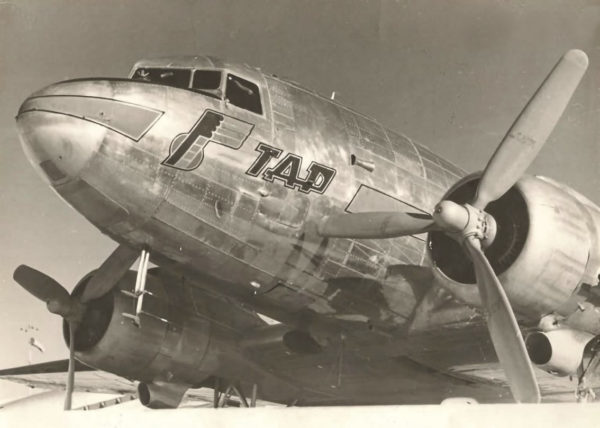
One of the most memorable plane of all time, that was in service for TAP for 14 years (1945-1959) (Photo: TAP Air Portugal)
When it exchanged public service for the market, the “Airline Deregulation Act” of 1978 became the death sentence for traditional companies that did not know or did not want to evolve and adapt, dropping the atavism of flagship companies. Symbolically, the sentence was carried out after the collapse of Pan Am in 1991 and TWA a few years later. And the list of defunct companies unable to adapt to the market logic has been, since then, endless.
More than two decades after its nationalization, TAP witnessed clear difficulties in 1998, with serious and constant labour conflicts and in a state of imminent bankruptcy. It was saved ‘in extremis’ with an exceptional authorisation from the EU for a last and single capital injection by the State, which took place in May that year when the Government led by António Guterres decided to start the TAP privatisation process. This inflow of public resources was the last and only between 1998 and February 2020. Within this context, during the next term, the second Government of António Guterres chose Swissair as the strategic partner and new shareholder of TAP, with a minority stake of 39% and the management of the company was entrusted to a team of professional managers, selected and recruited in the market, led by Fernando Pinto and further three Brazilian citizens and only one Portuguese. The strategic guidance and management of TAP’s followed as of then a market logic and the mission assigned to the new team was that of completing the privatisation process. This process was halted shortly after in light of the surprising bankruptcy of Swissair, which also dragged Sabena, which was by then about to join also TAP to form the Qualiflyer. This was the first approach to a defensive union of three medium-sized companies at the dawn of the consolidation movement, which, as a reflux of liberalization and the need to withstand the success of the low-cost model, began to grow among traditional companies, identified as ‘full-service legacy carriers’. TAP was thus left without a strategic partner and without a private shareholder, remaining entirely within the State sphere, but retaining the management team employing highly experienced foreign professional managers, who had the task of designing a new future for a rapidly decapitalised company.

The consolidation movement increased at the turn of the century. In the USA this led to a wave of mergers in the so-called “Legacy Carriers”, joining Delta with Northwest, United with Continental and American Airlines with US Airways in order to gain volume and scale and to operate in a much more competitive environment, improving the “Hub & Spoke” model, which together feeds and redistributes large traffic flows through major airports acting as nodes or hubs, in order to beat the low-cost model, which operates point-to-point, offering only services without stopovers or intermediary transfers combined on a single ticket, initially betting only on connections between secondary airports, with lower rates and based on very intense use of the aircraft, comparatively lower wages and absence of free services on board. Internationally, as there were still limits on the control of airlines by foreign entities, alliances and ‘unincorporated joint ventures’ were signed, under more or less in-depth commercial collaboration modalities. Consolidation in the EU gained momentum in the last decade, with the creation of three major groups, the full integration of British Airways, Iberia, Aer Lingus, Vueling and Level in the IAG group, integration of Austrian Airlines, Swiss, SN Brussels and Eurowings in the group headed by Lufthansa and the merger of Air France with KLM and Transavia. The space for stand-alone companies, like TAP, has narrowed brutally.
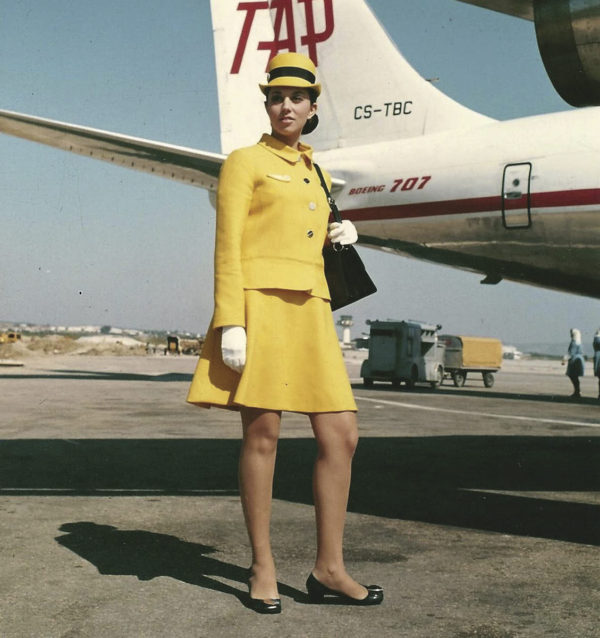
For fifteen years, the team led by Fernando Pinto has done a remarkable job, managing a fully decapitalised company, with an increasingly ageing and inefficient fleet, lacking the means to cope with the arrival and rapid growth of the new low-cost competition in national airports. The best operations achieved by TAP in this period and which were key to its survival were the investments made in Brazil, where it stood out as the largest foreign operator, duly accepted after having, with the main support of BNDES, unsuccessfully tried to save Varig, invested in the acquisition of aeronautical maintenance and engineering unit, now profitable, thus paving the way to obtain revenue levels more than twenty times higher than the investment amount. TAP became, markedly, the largest carrier from Brazil to Europe, turning Lisbon airport into a meaningful ‘hub’ and gaining dimension beyond the small national market.
But the remarkable bet on Brazil and the extra years of life that it would bring to TAP were no longer enough to prevent the deterioration of the company’s economic situation, after more than forty years of losses, which worsened after the failed privatisation attempt in 2012.
In December 2013, I was invited to speak at a meeting of TAP staff to give my testimony as a very frequent passenger of the company on the African routes. I was asked at the end what would be necessary to ensure the future of TAP and I tried to explain that I believed that there could be a future with an injection of funds of around € 300 million making it possible to minimally reshape the Balance Sheet, invest in the urgent renovation of the fleet and adjust the route network in the Atlantic space, getting the most of the geographical location of Portugal. I added that, given the public nature of TAP and the EU’s well-known aversion to the involvement of States in companies and especially in airlines, the only viable solution for obtaining own financial resources could be a partial privatisation of TAP’s capital, up to 49%, ideally finding one or more investors with a financial and industrial profile.
The somewhat hasty privatisation of November 2015, which handed over control of TAP to Atlantic Gateway, with the acquisition by the latter of 61% of the company’s capital and the granting of an option for the acquisition of the remaining capital in 2017 – which would result in the fact that from then on the State would no longer have any connection to TAP, and could do nothing more about its existence, its strategic guidance and its management – a problem that, in the end, created an opportunity for an good solution to make the future of TAP feasible while ensuring the full protection of the strategic interests of Portugal.
This solution was achieved with the reconfiguration, negotiated and agreed in February 2016. Atlantic Gateway agreed to reduce its stake to 45% and maintain the investment of around € 300 million in TAP, so that the State could retain a 50% position and the company’s strategic control, given that, with parity in the Board of Directors and a Chairman chosen by the State and with a casting vote no shareholder resolution or organic resolution could be adopted against the will of the State. This institutional model was there to ensure a balanced guarantee of both compliance with the 2016/2020 Strategic Plan, which was also agreed then, and the Strategic Commitments Agreement, which stipulates that TAP must maintain its national identity, its headquarters and effective management in Portugal, its very distinctive own brand, its decisive contribution to the national economy – as one of the largest exporters and contributors to the Balance of Payments and one of the largest employers – the fundamental links to the Autonomous Regions, Portuguese-speaking countries and places of our diaspora, reinforcing the Lisbon hub and improving the service provided to Oporto and the North region. This set of essential rules established among institutional shareholders created an adequate context and conditions for the daily executive management of TAP to continue, as happened since 2000, and which was entrusted to a team of professional managers with acknowledged experience in the sector, who remained in office until 2018 under the leadership of Fernando Pinto, who was always the consensual choice of the various governments of different parties that succeeded each other in 16 years.
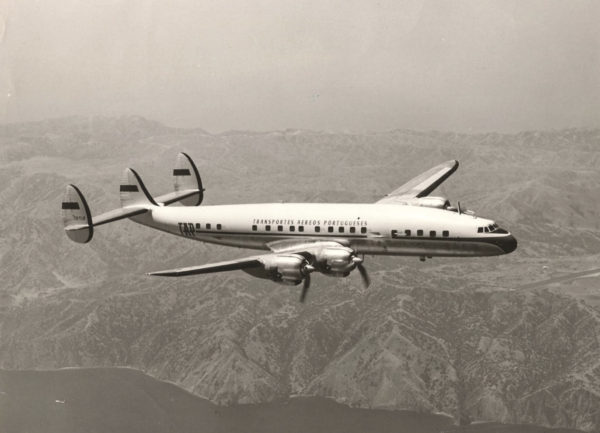
The iconic model with its triple fin assembly, conceived with the participation of the legendary aviator Howard Hughes, was created for intercontinental flights. This plane was in service for 12 years with TAP (1955-1967) (Photo: TAP Air Portugal)
The absolutely essential pillar of this Strategic Plan was the ambitious operational transformation project, based on the investment in renovating the fleet, improving operational efficiency, strengthening the Lisbon hub, without neglecting Oporto, where TAP’s offer more than doubled between 2015 and 2019, along with the significant expansion of connections to the USA and Canada, under a new balanced and diversifying scheme of risk distribution between South America and North America.
The time between 2016 and February 2020 was a truly different time for TAP, of concentration and dedication of all to comply with the Strategic Plan and the operational transformation project, enjoying an atmosphere of labour peace, unprecedented since 1975, bringing together the State, Atlantic Gateway, the seven hundred employees of the company who became its shareholders and the entire universe of employees of TAP group.
In addition to increasing the annual number of passengers from 11 million to 17 million, increasing revenues from € 2.1 billion to more than € 3.3 billion, moving the operating result (EBITDA) from € 115 million to € 500 million, having reduced the company’s financial leverage ratio from 11x to 6x, having substantially increased its contribution to national GDP and the Balance of Payments, given that around 70% of its revenues are obtained outside Portugal, or having created more than 2000 new direct jobs, highly qualified and well paid, TAP freed the Portuguese State also from liabilities for guarantees provided for funding in excess of € 600 million, by repaying the large loans of national banks that helped it stay afloat between 1998 and 2015.
But, much more than the assessment made by those who starred in the remarkable time of change between 2015 and February 2020 and who led have helped TAP to achieve it, in the second half of 2019, a sustainable profitable performance trajectory, tat would take this airliner beyond the Cape of Good Hope, the decisive judgments about the joint work done focus on the last four years of absolute success achieved and which helped TAP return to the financial markets, after almost fifty years of absence, without public guarantees, only with its own balance sheet and its ‘business case’, focusing first on the national capital market, in June 2019, attracting 6,000 new investors for the company, and then on the extremely demanding international debt market, in November 2019, receiving funding offers that far exceeded the best expectations. Nonetheless, the most important recognition of what was done between 2015 and 2019 was the real and very serious interest that other major airlines expressed in joining TAP and sharing its future, a very expressive appreciation that can be used as a reference to ascertain the necessary amounts to invest in order to hold a stake in the company’s capital.
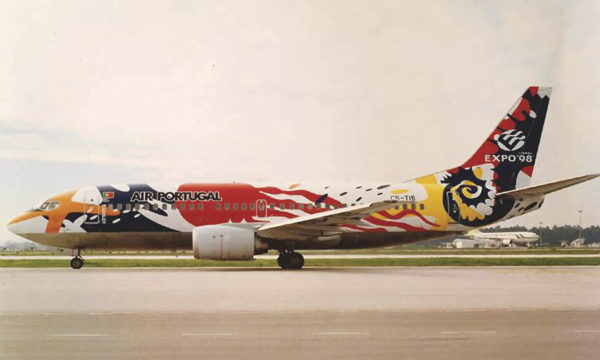
It was with this version that the era of Boeing at TAP ended in 2001. This plane was the target of two emblematic paintings: one commemorating the Portuguese organisation of EXPO 98 and another promoting tourism in the Algarve. This model was at the service of TAP between 1988 and 2001 (13 years) (Photo: TAP Air Portugal)
Suddenly, in the first days of March 2020, our collective life was dragged into an inhospitable dark tunnel, where we were initially confined to by fear and only now are we beginning to glimpse a small light but which is not year enough to let us understand the times and the way of life, maybe something different, that lies ahead for us.
Air passenger transport was completely halted and no airline will be able to survive without state intervention. Until further notice, the thriving commercial aviation market, which developed at an impressive pace and scale since 1978, is mortally contaminated.
It seems, therefore, that we were brought back to 1945 and that in the coming times, at least for a few years, there will only be public air transport service alone again.
TAP will return to the starting point, but will definitely fly again and face the challenges of the difficult and exciting game, which is its own future.







